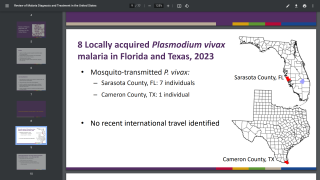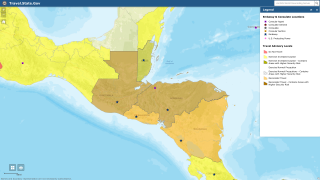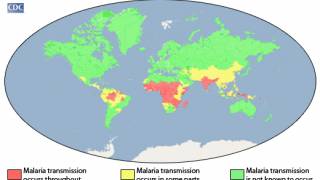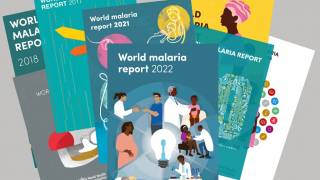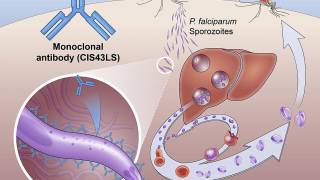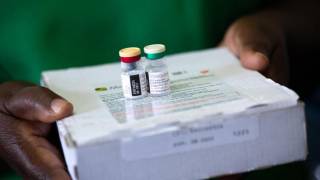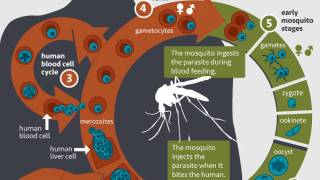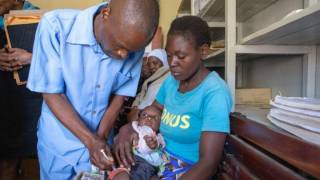World Malaria Day 2018 Focus On Research

World Malaria Day’s theme is “Ready to Beat Malaria” in 2018, and the National Institute of Allergy and Infectious Diseases (NIAID), which is part of National Institutes of Health (NIH), plans to achieve this goal through a comprehensive research program.
Significant global progress has been made since 2000 to reduce the incidence and mortality of malaria, says the NIH in a press release.
Much of the NIAID malaria research effort is implemented through the International Centers of Excellence in Malaria Research (ICEMRs), a collaborative network of research centers established in 2010 to conduct multidisciplinary studies in endemic regions and strengthen local research capacity.
However, recent evidence suggests that the trend toward fewer malaria cases and deaths has stalled, or may have reversed course in some countries.
In 2016, 44 countries reported fewer than 10,000 malaria cases, compared to 37 countries in 2010, according to the World Health Organization (WHO).
According to the WHO, this improvement is related to new prevention and control measures that reduce the burden of malaria.
In 2016, an estimated 216 million new malaria cases and 445,000 deaths occurred, largely among children living in sub-Saharan Africa.
“Malaria is a mosquito-borne disease characterized by fever, chills, and flu-like symptoms. It can cause serious complications and death if left untreated. Malaria prevention measures should be taken very seriously since there is no vaccine currently available,” said Natasha Gildersleeve, PharmD MTM Clinical Pharmacist at Brookshire Grocery Company.
“If you plan on traveling to a country where malaria is present, talk to your doctor well in advance about malaria prevention medications,“ Gildersleeve said.
In the United States, approximately 1,700 cases of imported malaria occur each year, with approximately 37 percent of these cases occur in women, including 5–6 percent who are pregnant at the time they are infected.
When a woman is infected with malaria during pregnancy, they are at an increased risk for maternal and fetal complications, says the Centers for Disease Control and Prevention (CDC).
The NIAID also is pursuing research on malaria vaccines that could serve a critical role in future malaria control efforts.
The Institute is supporting seven malaria vaccine candidates in various stages of clinical testing.
In early-stage clinical trials, one experimental malaria vaccine candidate called PfSPZ elicited high levels of protection in malaria-naïve adults in the U.S. and Europe against controlled human malaria infection with the same parasite strain occurring within a few months of immunization, and moderate levels of protection persisted up to one year after immunization.
NIAID scientists recently developed a human monoclonal antibody that protects mice from infection with P. falciparum.
This antibody, called CIS43, was derived from a person vaccinated with the PfSPZ vaccine candidate.
It will be administered to human volunteers to determine if it can protect them against a controlled human malaria infection. If safe and effective, the antibody potentially could be used among tourists, health care workers, and military personnel to prevent malaria infection for up to six months or be used in malaria elimination campaigns in conjunction with drug therapy.
Further progress against malaria requires a sustained commitment and effort among global partners.
On World Malaria Day, we thank the clinical trial volunteers who have participated in malaria research and reaffirm our commitment to the broad biomedical research efforts necessary to control, eliminate and, ultimately, eradicate this disease.
About the National Institutes of Health (NIH): NIH, the nation's medical research agency, includes 27 Institutes and Centers and is a component of the U.S. Department of Health and Human Services. NIH is the primary federal agency conducting and supporting basic, clinical, and translational medical research, and is investigating the causes, treatments, and cures for both common and rare diseases.
B. Fenton (“Lee”) Hall, M.D., Ph.D., is Chief of the Parasitology and International Programs Branch in the NIAID Division of Microbiology and Infectious Diseases. Anthony S. Fauci, M.D., is Director of the National Institute of Allergy and Infectious Diseases at the National Institutes of Health in Bethesda, Maryland.
For more information about NIH and its programs, visit www.nih.gov
Our Trust Standards: Medical Advisory Committee









